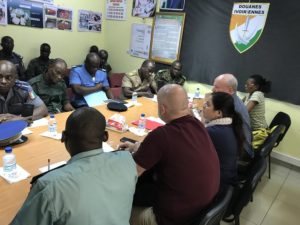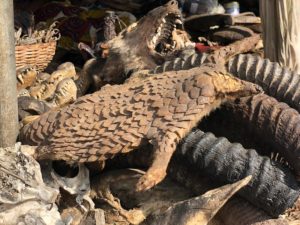One of the main challenges to tackling wildlife trafficking in West Africa is the lack of accurate or adequate data on the subject and the related threats to biodiversity. The benefit of conducting threat assessments in the field is that Born Free USA’s experts can interview key stakeholders to gather information in order to establish a regional baseline on the structure, scope, and impacts of wildlife trafficking on biodiversity in the region. The data collected informs efforts led by national authorities to combat trafficking through national and regional action and interventions.
For the past two years, our Africa Policy and Capacity Building team has been travelling regularly to West African countries for weeklong missions with customs and law enforcement experts to collect concrete information and data on the fight against wildlife trafficking in these countries.
To date, our team has led wildlife crime threat assessments in Benin, Burkina Faso, Ghana, Guinea, Ivory Coast, Liberia, Mali, Nigeria, Senegal, Sierra Leone, and Togo. The next countries assessed, in early 2020, will be Niger and The Gambia.

When working in West Africa, a visit to the local markets is sometimes not for the faint of heart. You never know what you will find; unfortunately bushmeat, animal skulls, and scaled pangolins are all too common. You have to be vigilant when visiting because illegal goods often are not where you are looking for them. In an Ivory Coast market, saleswomen promptly hid dead pangolins under their stall because they noticed our presence from afar, but later we saw scaled pangolins on stall walls while driving by. When possible, we try to conduct market assessments using covert officials so as not to attract undue attention.

Fighting wildlife crime requires cooperation, knowledge, communication, and a great deal of trust. We at Born Free USA are proud to do the critical work of forging partnerships with stakeholders, decision makers, and law enforcement in the West Africa region and look forward to expanding our efforts in 2020 and beyond!
Keep Wildlife in the Wild,
Aurora
